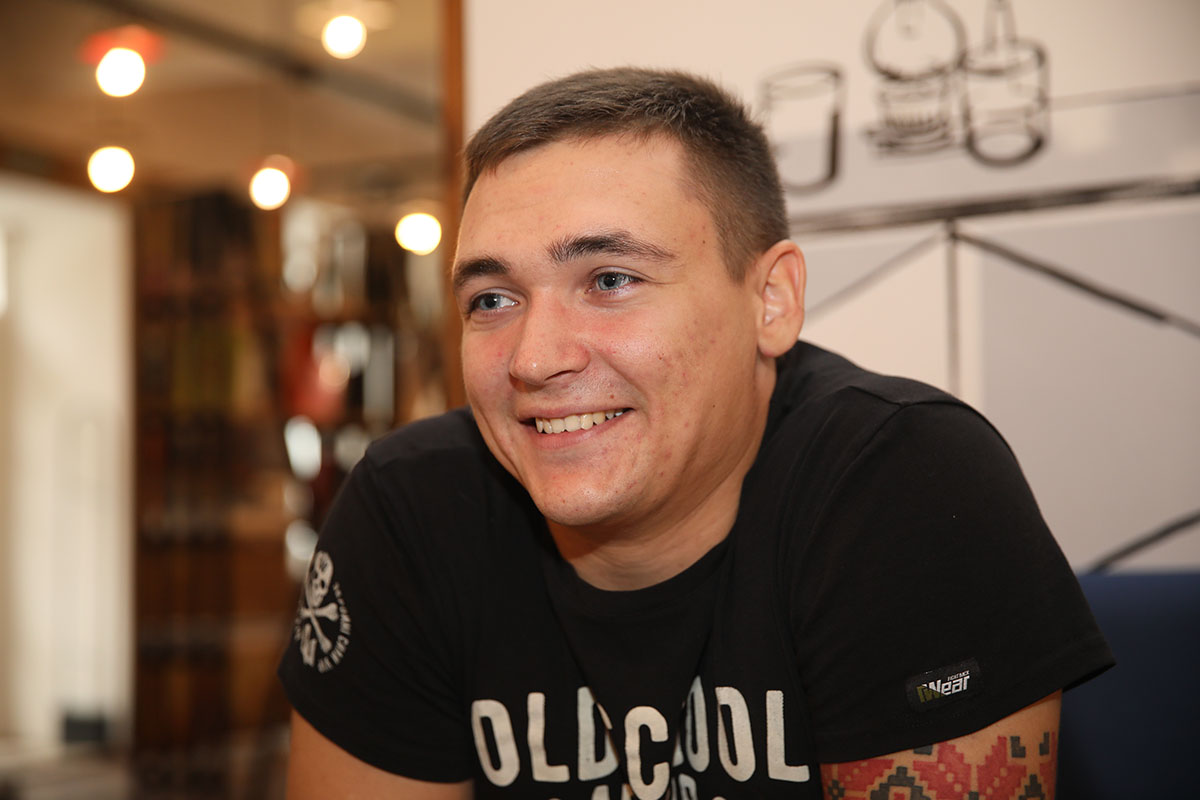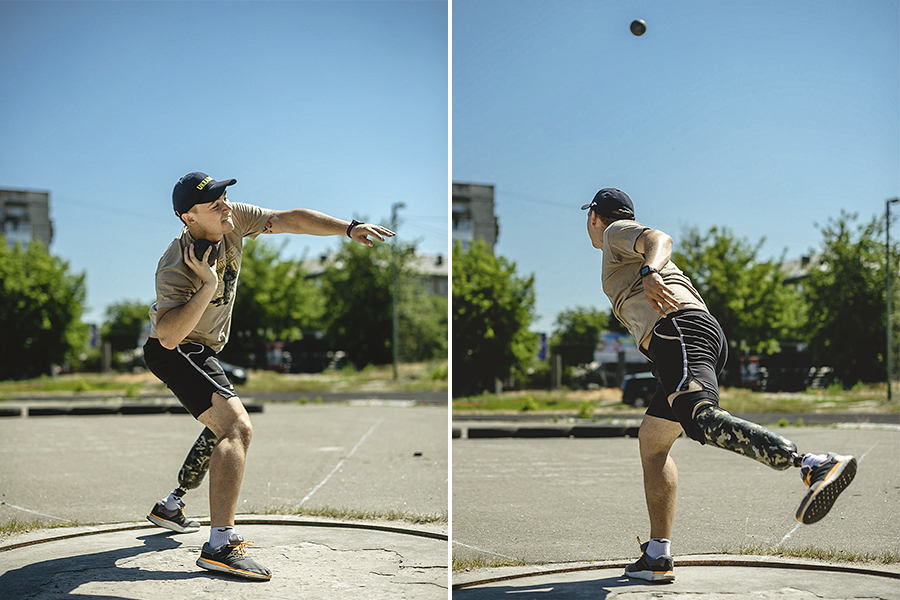Last October, 18 months after a landmine explosion tore off part of his leg, war veteran Yurii Dmytrenko ran the 10-kilometer Marine Corps Marathon in Washington, D.C.
Never having taken part in such sports event before his injury, Dmytrenko, 24, started training as part of his rehabilitation. He now uses three leg prostheses — one for running, one for swimming and one for all other physical activities.
After completing his rehabilitation, he continued regular training, trying new sports and participating in multiple competitions for war veterans — the Invictus Games, Marine Corps Marathon and the Games of Heroes.
He says that at first, he thought there would be things that he wouldn’t be able to do, like running or barbell squats. But he soon learned he was wrong.
“In a couple of weeks (of training) I realized that anything is possible, and that I shouldn’t limit myself,” Dmytrenko told the Kyiv Post.
He was 20 when he joined a volunteer expeditionary battalion after graduating from a university in Poltava, a city some 340 kilometers east of Kyiv. He had been an active protestor during the Euromaidan Revolution, which forced former Ukrainian President Viktor Yanukovych from power on Feb. 22, 2014, and Dmytrenko says that protecting his country after Russia launched its war in the east was “a logical continuation.”
Over one-and-a-half years of service, the veteran fought all along the frontline both in Donetsk and Luhansk oblasts. After he was injured in March 2016, Dmytrenko was hospitalized in a Mariupol clinic. There, the doctors had to amputate part of his left leg.
He was later transferred to Kyiv, where he went through rehabilitation. It was there where he found out about the upcoming Games of Heroes, an international sports competition for war veterans and other people with disabilities held in Kyiv.
Dmytrenko started intensive training to compete at the Games of Heroes, qualified for the final in December 2016, and took second place in the CrossFit category — a combination of weightlifting, rowing, and other fitness regimes.
As he became involved in more sports projects, the veteran decided to stay in Kyiv rather than move back to Poltava. He first tried working in IT, but eventually settled in a job at the public relations department of Ukraine’s Patrol Police. He says that he “needed some socially useful job.”
Discipline and laziness
Dmytrenko says that sport not only helped him to recover physically, but also maintains his feeling of wellbeing.
“I feel the whole range of pleasures that sport gives.”

Ukrainian veteran and athlete of Ukraine’s Team for the Invictus Games Yurii Dmytrenko talks to the Kyiv Post on Sept. 5. (Volodymyr Petrov)
He also believes that sport helped him to develop self-discipline and influences him positively at the mental level.
“It provides a psychological relief. When I don’t train for a week I’m always in a bad mood,” he says.
Apart from that, the veteran says that sports and competitions, in particular, get his adrenaline going — he believes it’s important for veterans to find an activity to replace the adrenaline rushes they experienced during the war.
Dmytrenko says that training with a prosthesis is pretty much the same as regular training, except that some exercises might take him longer to adapt to.
“I can’t say it’s more difficult. It’s just different.”
And the veteran’s positive attitude helps him see no unattainable goals.
Just three months after receiving his prosthesis for running, Dmytrenko, along with nine other Ukrainians, went to Washington D. C. in the United States to run in the Marine Corps Marathon, an annual event aimed to promote physical fitness and support veterans.
He finished the 10-kilometer-distance in 70 minutes.
“Around 2,500 participants finished faster, but I was faster than around 3,500 runners. And that’s good,” he says.
However, just like anyone else, Dmytrenko sometimes finds it hard to motivate himself to go to the gym. As he is not a professional athlete, he says at these times he follows his instincts and gets some rest.
“I buy a cake and lie down at home,” he jokes. “But that gets boring too, and then you have to find the motivation to keep on lying about at home and eating cake.”
That’s when the veteran gets back to training.
Unconquered athlete
Last year, Dmytrenko qualified for Ukraine’s reserve team at the Invictus (Latin for “unconquered”) Games, an international multi-sport event for veterans, including those that have suffered life-changing injuries. The event was launched by Britain’s Prince Harry, a former soldier who served two tours in Afghanistan.

Ukrainian veteran and athlete of Ukraine’s team for the Invictus Games Yurii Dmytrenko throws the put during the training at the Spartak stadium in Kyiv in June. (Invictus Games Team Ukraine)
As part of the reserve team, Dmytrenko didn’t get to participate in the official competitions. However, he says that visiting the Invictus Games, held in September 2017 in Toronto, Canada, was a great experience.
He said that the atmosphere was very friendly and there was no competitiveness, except for on the sports field.
“Everyone talks to each other during training, and by the time competition starts, everyone knows each other.”
A total of 550 athletes from 17 countries attended the Invictus Games last year, and Dmytrenko said they all became friends, as they share some very similar experiences.
“We had the same problems during the fighting, and we have the same problems after being injured,” he said.
This year, Dmytrenko qualified to participate in five kinds of sport at the Invictus Games including indoor rowing, shot put, swimming, running and the long jump.
The competition will take place on October 20–27 in Sydney, Australia, and Dmytrenko is now training five times a week to get ready for the upcoming event.
The veteran says that he will never quit doing sports, as it was his way to recover, and he loves it and needs it in his life. Nevertheless, he believes not all the veterans have to get involved in sports — the main thing is for them to find an activity to put an effort into, which will help them return to regular life.
